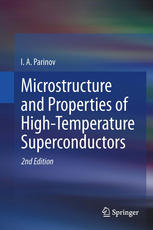

Most ebook files are in PDF format, so you can easily read them using various software such as Foxit Reader or directly on the Google Chrome browser.
Some ebook files are released by publishers in other formats such as .awz, .mobi, .epub, .fb2, etc. You may need to install specific software to read these formats on mobile/PC, such as Calibre.
Please read the tutorial at this link: https://ebookbell.com/faq
We offer FREE conversion to the popular formats you request; however, this may take some time. Therefore, right after payment, please email us, and we will try to provide the service as quickly as possible.
For some exceptional file formats or broken links (if any), please refrain from opening any disputes. Instead, email us first, and we will try to assist within a maximum of 6 hours.
EbookBell Team

5.0
38 reviewsThe main features of high-temperature superconductors (HTSC) that define their properties are intrinsic brittleness of oxide cuprates, the layered anisotropic structure and the supershort coherence length. Taking into account these features, this treatise presents research into HTSC microstructure and properties, and also explores the possibilities of optimization of the preparation techniques and superconducting compositions. The "composition-technique-experiment-theory-model," employed here, assumes considerable HTSC defectiveness and structure heterogeneity and helps to draw a comprehensive picture of modern representations of the microstructure, strength and the related structure-sensitive properties of the materials considered. Special attention is devoted to the Bi-Sr-Ca-Cu-O and Y-Ba-Cu-O families, which currently offer the most promising applications. Including a great number of illustrations and references, this monograph addresses students, post-graduate students and specialists, taking part in the development, preparation and research of new materials. The new edition had been updated intensively, especially experimental investigations and modeling conductive and elastic properties of HTC superconductors have been added.